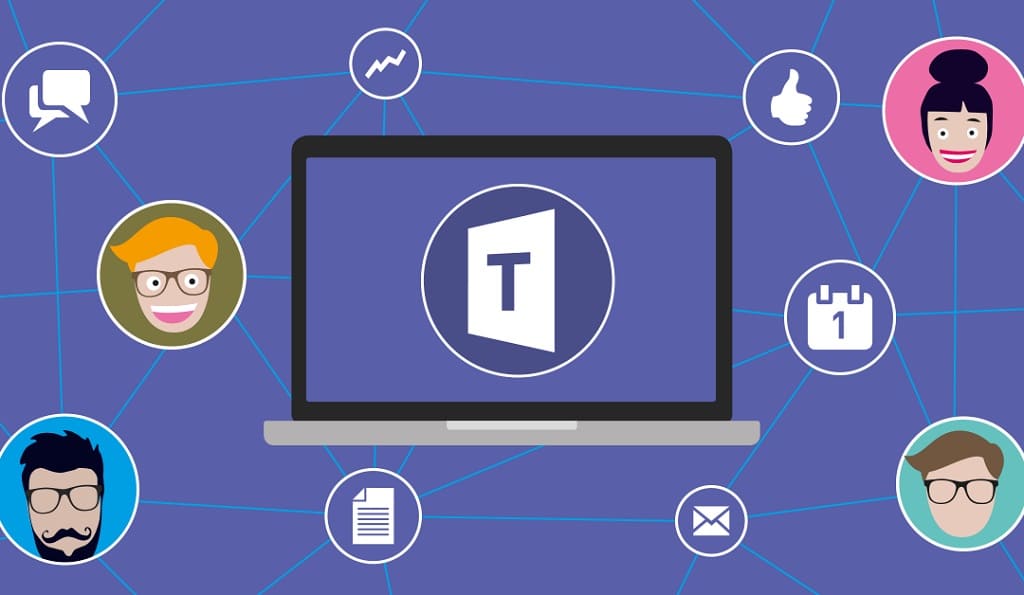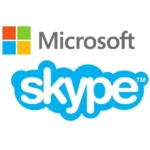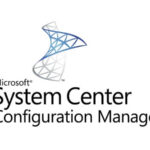Microsoft Teams features round up Enterprise Connect Edition.
CHAT
Secure Private Channels – coming later this year – allow you to limit which team members can see the associated conversation and content within that channel. You can right-size channel participation and exposure without having to create discrete teams to limit visibility. This is one of our top requested features and we’re excited to be actively testing this internally and with select customers.
Information barriers – coming soon – avoid conflicts of interest within your organization by limiting which individuals can communicate and collaborate with each other in Microsoft Teams. This helps limits the disclosure of information by controlling communication between the holders of information and colleagues representing different interests, for example, in Firstline worker scenarios. This is particularly helpful for organizations that need to adhere to ethical walls requirements and other related industry standards and regulations. Teams also comes with other built in compliance capabilities, such as retention, eDiscovery and supervision, built in.
MEETINGS
The new Calendar App is rolling out in April 2019. The existing ‘Meetings’ app in Teams will be replaced by the Calendar app that retains all existing app functionality while introducing a range of new features. Three new types of calendar views will be available: Day, Work week and Week view (default). Users will have the ability to go back or forward in time to see any past or future meeting. Users will be able to perform key actions including Join, RSVP, Edit, and Cancel from the right click menu. Meetings on the calendar will light up to indicate when someone joins it online. User’s current exchange setting for working hours and working days of the week will be respected. Lastly, users can schedule events without adding any attendees in the scheduling form. Non-Teams meetings can also be edited and updated from Teams directly.
Live Captions – coming soon as a public preview for English – make your Teams meetings more inclusive for attendees who are deaf or hard of hearing, have different levels of language proficiency, or are connecting from a loud location. Improve meeting effectiveness by allowing attendees to read speaker captions in real-time so they can more easily stay in sync and contribute to the discussion.
Customized backgrounds – coming soon – takes our intelligent background blur technology one step further, allowing participants to select a more professional background when working remotely, to appear behind them during a meeting or video call. This improves the effectiveness of remote meetings by encouraging the use of video while minimizing distractions.
Content Cameras and Intelligent Capture – coming soon – will soon support an additional camera for content capture, such as capturing information on analog whiteboards. Using any USB camera, Microsoft Teams Rooms leverages our new Intelligent Capture processing to capture, focus, resize, and enhance whiteboard images and text, so remote attendees can clearly see whiteboard brainstorming in real time, even when someone is standing in front of the whiteboard.
Microsoft Whiteboard in Teams meetings (commercial preview) empowers meeting attendees from the same tenant to participate in the conversation regardless of the device you use or where you are. Whether joining from the meeting room or remotely, you can start a new board in the Teams meeting (currently supported on desktop and web – coming soon to mobile). The board is automatically shared with meeting attendees. Users can ink together in real-time on the board and even launch the native Whiteboard app to enable an even richer collaboration experience with features such as sticky notes, images, and gridlines. Ink Grab, enables you add analog content from a physical whiteboard onto the Whiteboard canvas without having to recreate it from scratch. If you start an ad-hoc brainstorm session on the physical whiteboard, you can easily continue via the digital whiteboard and include remote collaborators in the conversation. Simply take a picture of the content and use Ink Grab to transform them into digital ink.
Enhancements to the Chrome browser meeting experience (coming soon) are getting richer for Windows and Mac users. A year ago, we introduced frictionless meeting join in Chrome with no client needed. Coming soon, we will enhance that zero-footprint experience by adding 3 new capabilities: the ability to see participants video, application sharing, and full desktop sharing. This enables any meeting attendees to have face to face conversations and share content easily, with zero downloads needed.
Live Events in Microsoft 365 (now available) enables anyone to create live and on-demand events that deliver compelling communications to employees, customers and partners. Events use video and interactive discussion across Teams, Stream, or Yammer and can be as simple, or as sophisticated as needed, using webcams and screen sharing for informal presentations, or stream a studio-quality production for more formal events. Up to 10,000 attendees can participate in real-time from anywhere, on any device, or catch up later with powerful AI features that unlock the content of the event recording.
Meetings First (in preview) is a great addition for our Enterprise Voice customers who use Skype for Business Servers. It allows customers to protect their voice investments by continuing to use their servers for Calling and Chat while harnessing Microsoft Teams for cloud-based meetings. Your users will enjoy best in class, modern meetings while your company experiences improved performance using the Microsoft global cloud infrastructure.
New Meeting Devices are being created by our partners increasing choice for our shared customers. Microsoft welcomes the Yealink MVC500 and MVC800 to the expanding group of devices for meeting rooms. The announced Logitech Tap offers a low-profile sleek design and can be desk-based or wall-mounted. The new Polycom Studio allows for plug and play video and audio experiences which will complement the meeting room. And bring your teams together with the Yealink VC200 video conferencing device which is designed to support huddle spaces.
Phones will see new devices as well including the Polycom CXX 500 and Yealink T55A which enable calling experiences for personal spaces and common areas. Additionally, the new video phones Crestron Flex P250 and Yealink VP59 allow users to experience rich video and audio on a single desk phone.
Peripherals are experiencing new innovations starting with speakerphones from Jabra Speak 710-Teams, Sennheiser SP30-Teams and Yealink CP900 all of which have dedicated Teams buttons. This integration allows you to take quick actions from your device when connected to your PC or mobile phone.
Learn more about all these great products from our partners, AudioCodes, Crestron, HP, Jabra, Lenovo, Logitech, Plantronics/Polycom, Sennheiser and Yealink at Microsoft Teams Marketplace which now includes improved experiences for shopping by device and space
CALLING
Direct Routing (available now) provides customers the ability to connect their voice trunks via certified Session Border Controllers (SBC) to Office 365. And we continue to enhance DR with key features. Media Bypass (available now) is being supported by many of our Session Border Controllers partners – this improves AV quality by enabling direct connections between callers in many scenarios. We also have added new certified SBC vendors – Oracle and TE-Systems.
We see the number of connections from certified Virtualized SBCs (available now from partners) growing in our data as well as feedback from partners that many customers are choosing to virtualize their SBCs on Azure. A “no hardware” approach can be your path to a cloud voice solution saving time and money for your deployment and operations. Be sure to check with your preferred partner if virtualization fits in with your plans to deploy Calling in Teams.
Dynamic e911, Location Based Routing, Music on Hold, and Busy on Busy are coming soon. These are additional features which voice administrators routinely request. We appreciate the feedback as it helps keep our teams prioritized for your needs. We invite you to keep an eye on our public roadmap – as we add them based on their timing.
Cloud Voicemail (CVM) has been supporting our cloud users for more than two years. We are now adding support for our Skype for Business Server customers as well as those using Lync Server 2013. Cloud processing of your voicemail will give users access to latest in technology with cloud reliability.
OFFICE 365
App Setup Policies are rolling out this month and provide new and more flexible ways for IT admins to manage how users can discover, use, and develop the 250+ integrations we have available in Microsoft Teams, as well as the integrations you build for your organization. App Setup Policies can customize Microsoft Teams to highlight the apps that are most important for your users. Choose the apps to pin and set the order that they appear in your left-hand rail. App setup policies let you showcase apps that users in your organization need, whether they were built by Microsoft, our partners, or your developers. These policies also manage how built-in features appear for your users. You can now manage access to apps for individual users through App permission policy. This policy lets you control who in your organization can interact with specific Microsoft and externally built apps. You can also limit access to apps built by your organization, letting you phase the app rollout. You can define org-wide settings to block certain apps outright for your tenant.
eDiscovery for Teams calling and meetings is now generally available for Office 365 and Microsoft 365 plans that include core eDiscovery capabilities. Achieve requirements for data discovery as part of an investigation or litigation for Teams content with the same in-place search, conditions and export experience as you use for the rest of Office 365 content.
Legal hold for Teams content of on-premise Exchange users is now generally available for all organizations with Office 365 or Microsoft 365 E3 plans. Because Teams stores content for Exchange on-premise users in the cloud, the same process to manage and discover against Teams channels and chats can be used. Give your legal department a sigh of relief as they embrace the modern workplace. Not only do you have all the benefits of the chat-based workspace, but you have them in a compliant way.
Custodian management for Teams memberships is now in preview as part of the new Advanced eDiscovery update. Organizations with Office 365 E5, Advanced Compliance or Microsoft 365 E5 Compliance can use the new capabilities to manage custodians as part of an investigation or litigation. Quickly identify and place a legal hold on shared locations such as Teams – based on memberships of the individual related to the case.
Retention for Teams channels and chats is now available as part of the core Data Governance capabilities in Office 365 or Microsoft 365 E3. Use this capability to place a retention and/or deletion policy on Teams channels and chat messages to ensure requirements for retention are met, and to limit risk and exposure of keeping data for too long. Select the Teams and individuals for message retention within the compliance center for broad organization, groups, and/or specific users.
Supervision for Teams channels and chats is now generally available to help organizations meeting internal communications monitoring requirements to meet regulatory compliance or internal policies. Establish policies with intelligent conditions and identify Teams or users and the related channels and / or chat messages to be included in the supervision policy. Supervisors can then review content with the new built-in review experience to tag, escalate, and/or bulk resolve.
Virtual Desktop Infrastructure (VDI) is coming In April to allow organizations to use Microsoft Teams in virtual desktop environments. This will give customers and partners the ability to collaborate effectively with private chats, open channel conversations, and file sharing. Teams can be installed in each individual virtual machine in persistent and dedicated VDI environments. This solution will work in the major VDI environments for chat and collaboration. We are also currently collaborating with Citrix to enable calling and meetings features in Teams.
Data loss prevention (DLP) has been available for Exchange Online, SharePoint Online and OneDrive for Business for a while, and now we’re extending DLP to Microsoft Teams – to enable the blocking of sensitive information contained in chat messages and channel conversations. This is based on the same policy engine used and proven in our other DLP services. For organizations that are using Microsoft Teams to accelerate their workforce collaboration and productivity, this provides a new way to ensure proper control and governance of important data – both for the purpose of achieving internal security objectives as well as meeting external compliance and privacy requirements.
The experience is simple for end-users and balances the need to enforce data protection policies while not inhibiting end-user productivity. When someone sends a message, either within a chat or a channel, the content of the message is inspected for sensitive information – as defined by your organization. If sensitive information is identified, then the message is revoked and no longer accessible by the recipient(s). Similar to how DLP operates in other Office 365 services, policy tips gives the sender additional information on the reason for the message being blocked, such as the presence of credit card information or social security numbers. IT admins have the flexibility to configure policy to allow end-users to override the blocked message or report the issue as a false positive, which can help the company fine-tune their DLP settings. Policy settings are configured in the Security & Compliance Center as DLP settings for Exchange Online, SharePoint Online and OneDrive for Business.
APPS AND INTEGRATIONS
Core to the value of Microsoft Teams is the ability to integrate and extend the capabilities of all your solutions – whether or not Microsoft built them – into one single hub. Read on to learn about the latest integrations becoming available during the Enterprise Connect timeframe.
Control for Microsoft Teams by Smarsh extends the Microsoft DLP solution by enabling customers to enforce internal policies which improves compliance in their risk and security efforts. DLP policies can be implemented to monitor for violations across a variety of content types including conversations (chat, channels, emojis, GIFs, links, and bots), files, wiki and OneNote. Assets found to be in violation can be challenged, redacted, or deleted.
MVISION for Microsoft Teams by McAfee provides a full set of security, governance and compliance capabilities that extends the Microsoft DLP solution for Teams. The platform covers access control, policy enforcement, collaboration control, activity monitoring, threat prevention, audit trails for investigations, and helps secure multiple access modes including browsers and native apps.
InformaCast Fusion from Singlewire Software enables Microsoft Teams users to send mass urgent or emergency notifications. Users can initiate an alert using their Teams bot. The bot responds with an adaptive card where users provide details about the situation taking place. Once confirmed, the bot sends alerts through Teams, mobile devices, digital signage and other connected devices. Following distribution, safety team members will receive a prompt to join a Microsoft Teams channel where they can collaborate and follow up on the situation.






















